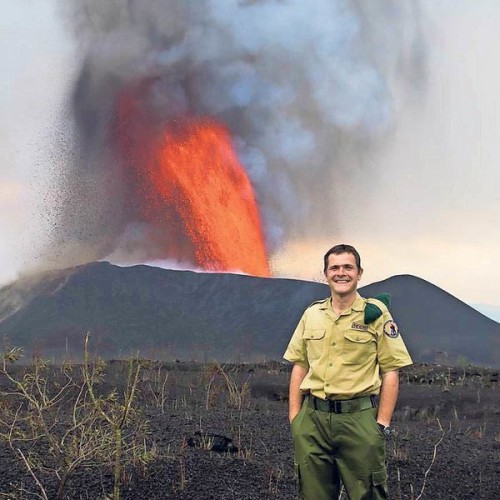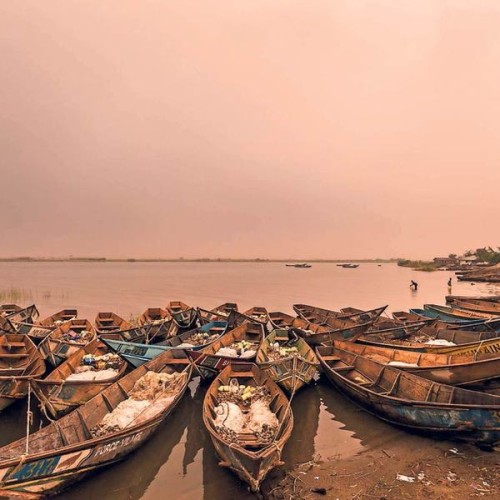PBS: Escaping Eritrea … [Read More...] about ካብ ውሽጢ ቤት ማእሰርታት ኤርትራ
The most dangerous job in Africa
It is one of the most beautiful places on Earth. And one of the most tragic. It is that corner of Africa where Rwanda, Uganda, and the Democratic Republic of the Congo come together. Straddling it all is the 7 800km2 Virunga National Park – Africa’s oldest proclaimed park (established in 1925) and one of our continent’s most important protected areas.
“This is probably the greatest protected area on Earth, containing as many as 40% of Africa’s species, with more endemic species than any other African park,” the park’s director, Emmanuel de Merode, says in his understated way. Everything about De Merode is understated – he plays down the fact that he has a doctorate (on the illegal bush meat trade in the Congo), that he is a Belgian prince (albeit born in Tunisia and raised in Kenya) – and that he has one of the most dangerous jobs in Africa.

On April 15 last year, he was ambushed near the park headquarters, Rumangabo. He was shot in the chest and abdomen. He was lucky. Since the Rwandan genocide in April 1994, and the subsequent rise of rebel militias in the eastern DRC, 140 Virunga park rangers have been killed, and the park headquarters has been bombed and attacked.
Virunga is under constant siege – 12 different militias operate in the area. They compete with each other for the easy cash that can be made from the park’s natural resources: Lake Edward for fish, elephants for ivory, baby gorillas for bush meat, the forests for charcoal – especially the old-growth hardwoods from the Afromontane and Afro-Alpine forests. This is one of Africa’s treasure troves and, hence, one of its most toxic, and intoxicating, killing fields.
“Before the genocide in Rwanda and the subsequent civil wars in the Congo, there were estimated to be between 27 000 and 30 000 hippos, the most important population in Africa. By 2005, there were just 350 individuals left,” De Merode tells me.
“Since 2005 we have put a lot of effort into protecting them, because each hippo deposits about 40kg of nutrients a day from the land into Lake Edward. They are very important habitat architects. They help to keep the fishing industry secure, and we now have about 1 450 individuals.”
That fishing industry is worth US$40-million a year. “Legally, only 700 boats are allowed on Lake Edward, but there are 4 000 to 5 000 boats, harvesting between 12 000 and 14 000 tonnes of fish a year, 80% of it is illegal fishing,” De Merode says.
Elephants under threat
As in the rest of Africa, and East Africa in particular, the park’s elephants are under severe threat. “It has been a difficult decade for elephants. Before the genocide and the civil wars, we had over 3?000 savannah elephants. That has crashed to about 200. Forest elephants are harder to count, but we have perhaps 500 to 600 left.”
Complicating the picture is the fact that London Stock Exchange-listed British company Soco has oil prospecting rights over almost half the park, and has allegedly been cosying up to rebel groups for protection. Soco strenuously denies this.
The Virunga National Park is the spine holding some of the continent’s most extraordinary landscapes together: the world’s largest lava lake Nyiragongo, forests ranging from lowland to Afro-Alpine, savannah, snow fields and glaciers. The area includes Uganda’s Bwindi Impenetrable National Park, Ruwenzori Mountains National Park, Mgahinga Gorilla National Park, and Queen Elizabeth National Park and Rwanda’s Volcanoes National Park.
Virunga is a Unesco World Heritage Site and, along with Bwindi and the other parks in the region, is home, on the dormant flanks of the 4 380m Mikeno volcano, to the last 750 mountain gorillas on Earth.
De Merode was brought in as director of the park on August 1 2008 after the previous director was suspended for involvement in not only the illegal charcoal trade, but also in the massacre of nine mountain gorillas.
Revenue for armed groups
“The park has become a source of revenue for different armed groups. Virunga’s rangers are seen as an opposition force, so we have become a target. Six million people have died in Eastern Congo since the genocide. While it was provoked by the genocide, what has kept it going, that terrible conflict, is the illegal exploitation of natural resources in Eastern Congo, this incredibly rich area.
“A lot of attention has been given to coltan [columbite–tantalite], the component used in mobile phones and playstations. It’s the sexy thing, but there are other resources that are even more important.

“The charcoal is key in the forests. Four million people live within a day’s walk of the park. One of the most important commodities for those people is household fuel for cooking, sterilising water, critical for survival. Charcoal is one of the most under-reported, destructive resources in Africa, the cause of massive deforestation, with very, very serious consequences to human welfare, nowhere more so than around Virunga.
“Charcoal underpins the insecurity in the area. You have a city like Goma, where nearly a million people are reliant on charcoal for survival, the forests outside the park have been wiped out, so the only reliable source of charcoal is the park.
“It becomes a protection racket, how the armed groups make their money. The women who go in to transport these 80kg sacks of charcoal have to pay $25 a month to avoid getting raped or attacked by the militias. So $25 a month multiplied by several thousand women becomes a very significant revenue stream for the FDLR [Democratic Forces for the Liberation of Rwanda].”
Gorillas were not the primary target of the 2007 massacre, De Merode says. It was the rangers who were the target, the logic being that, if you get rid of the gorillas, there will be no work for the rangers. Then nobody would stand between the rebels and the main target: the natural resources that make Virunga a treasure trove.
Virunga Alliance
De Merode is working with a wide range of organisations under the umbrella of the Virunga Alliance. Ambitious plans have been drawn up to create 60?000 jobs and make the park and its resources more attractive than working with, or being part of, the rebels.
Perhaps paradoxically, I interview De Merode in the plush Cape Town head office of Investec, once a shareholder in Soco. They have since divested “following concerns over environmental, social and security issues in Virunga”. The company is now working with De Merode and the Virunga Alliance on a long-term development plan for the park to wean the surrounding communities off dependence on the rebels.
The plan includes building hydropower plants to generate up to 100MW of power for the park’s four million neighbours to replace charcoal as an energy source, building up the fishing and agriculture industries, and developing tourism.
De Merode refuses to speculate on who was behind the ambush that nearly killed him last year. His Wikipedia page states that “media reports have cited various suspects, including those engaged in the illegal production of charcoal, people associated with Soco International, a British oil company engaged in the exploration for oil in the national park, and guerrillas associated with the FDLR”.
Soco had not responded to this by the time of going to press. – tonyweaver@iafrica.com
This article was funded by the Conservation Action Trust conservationaction.co.za. The documentary Virunga, directed by Orlando von Einsiedel (Grain Media) and executive-produced by Leonardo DiCaprio, is available on Netflix. See virungamovie.com

